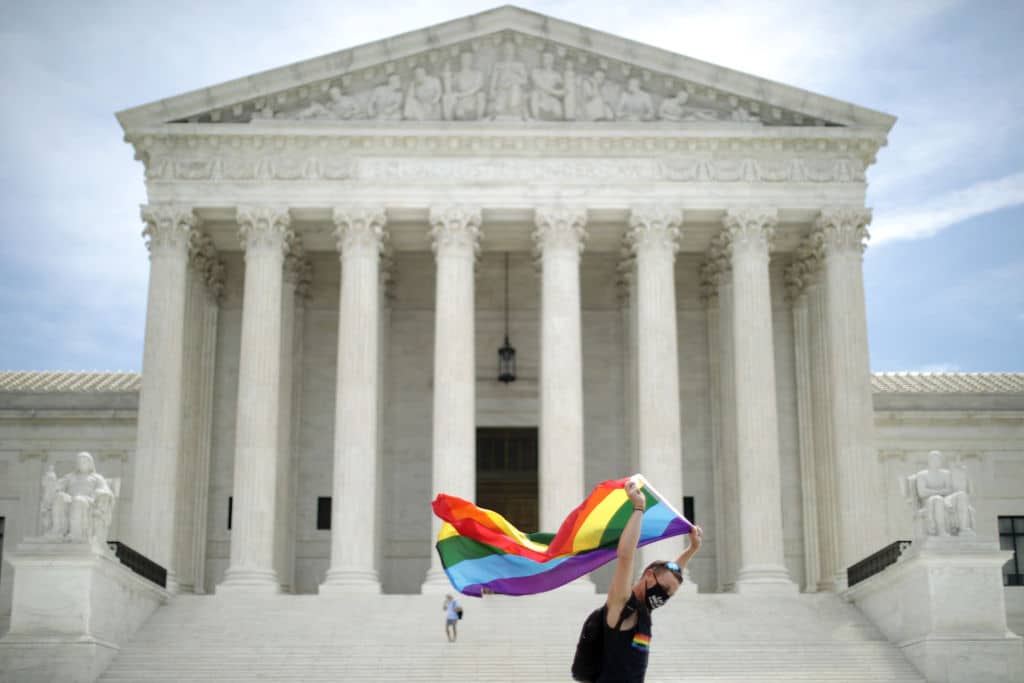US Supreme Court shuts down religious university’s bid to block LGBTQ+ group
Author: Amelia Hansford

The US Supreme Court. (Getty)
The US Supreme Court has denied a Yeshiva University’s request to effectively ban an LGBTQ+ student group.
The private Orthodox Jewish university filed an emergency motion to block a lower court order requiring it to recognise an LGBTQ+ student club on campus.
After Supreme Court justice Sotomayor granted a temporary stay on the ruling on Friday (9 September), the court on Wednesday (14 September) voted 5-4 to deny the motion.
The decision to deny Yeshiva University’s motion came at the hands of justices John Roberts, Brett Kavanaugh, Sania Sotomayor, Elena Kagan and Ketanji Brown Jackson.
In a written dissent by justice Samuel Alito, joined by Clarence Thomas, Neil Gorsuch and Amy Coney Barrett, he claimed the university would “likely win if its case came before us”.
Alito’s dissent also claimed the university had a First Amendment right to deny the acknowledgement of the LGBTQ+ group, saying it “guarantees of the right to the free exercise of religion” and that “it prohibits a state from enforcing its own preferred interpretation of Holy Scripture”.
“Yet that is exactly what New York [where the original ruling was handed down] has done in this case, and it is disappointing that a majority of this court refuses to provide relief.”
‘Recognition does not equate to endorsement’
Yeshiva University filed the emergency motion on 29 August, after New York judge Lynn Kolter ordered the university to grant “advantages, facilities, and privileges afforded to all other student groups” to the LGBTQ+ club in a June court ruling.
Kolter explained the club’s recognition did not violate First Amendment rights because “formal recognition of a student group does not equate to [an] endorsement of that group’s message”.
After bringing the matter to the high court, lawyer and representative of the school Jonathan Berry told the court that “as a deeply religious Jewish university, Yeshiva cannot comply with that order because doing so would violate its sincere religious beliefs about how to form its undergraduate students in Torah values”.
He also claimed the university “welcomes and provides support services to its LGBTQ students” and that it bans discrimination and bullying against LGBTQ+ people.
In response, justice Sotomayor had issued a temporary stay on the ruling, effectively allowing the university to ban the group, so that the Supreme Court justices could use the time to further analyse the case. She confirmed her decision was “hereby stayed pending further order of the undersigned of the court”.
The eventual decision to deny the emergency request was lauded as a victory by several graduates and students from Yeshiva University, including graduate Molly Meisels, who said in a tweet: “This Supreme Court decision is a victory for Yeshiva University students who are simply seeking basic rights that are uncontested at peer universities.”
Actual Story on Pink News
Author: Amelia Hansford



